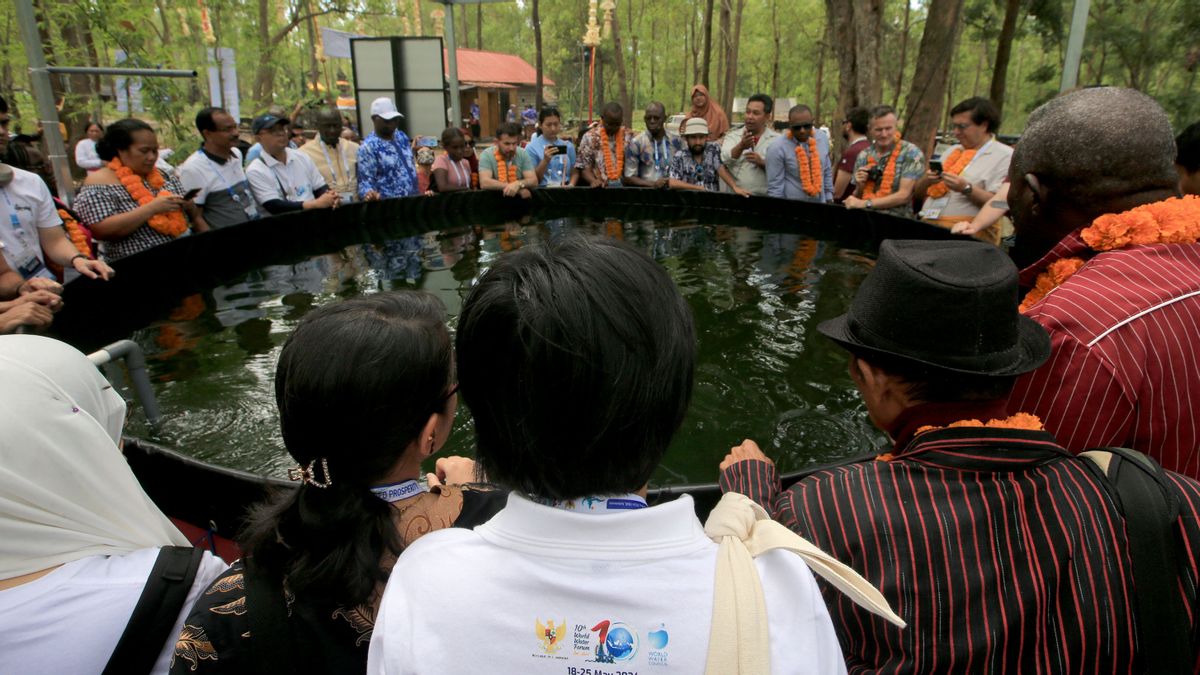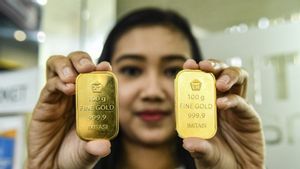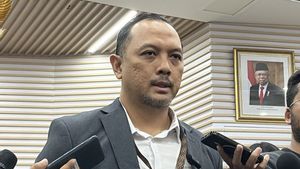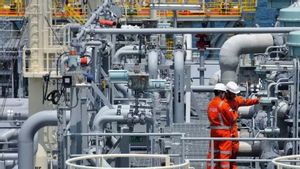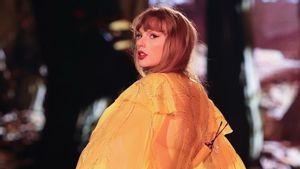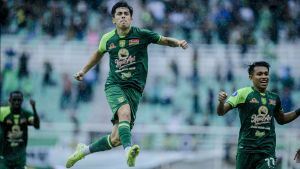JAKARTA - Population growth, climate change, increased tourism activities that are not accompanied by effective water resource management can increase the potential for water deficits.
Based on data from the Bali Island Water Support Status uploaded by the Bali Tailegion Development Control Center and Nusa Tenggara, the Ministry of Environment and Forestry in 2021, it is estimated that the water status in Bali will be a deficit in 2025. The data noted that the water demand in Bali in 2021 will reach 5,951.92 liters per second and will be 7,991.29 liters per second in 2025. The condition of the water deficit in Bali in 2025 has the potential to occur if the capacity of the raw water supply infrastructure in Bali has not yet increased capacity.
The collective action of managing integrated water resources from upstream to downstream can be one solution to maintain water availability. Karyanto Wibowo, Director of Sustainable Development of Danone Indonesia, said that his party is aware that encouraging sustainability efforts is an important step to have a real impact on environmental and community sustainability.
"This is in line with the company's commitment as stated in the second pillar of the Danone Impact Journey, preserving nature. Therefore, Danone Indonesia is actively involved in efforts to manage integrated water resources from upstream to downstream in a number of watersheds (DAS) in our area to carry out operational activities, including in Ayung Watershed, Bali," he said in a written statement, Friday, June 14.
The Ayung watershed is the largest river in Bali with an area of 109.30 km2, while the tributaries have a length of 300.84 km2. These 2 watersheds flow through six (6) districts and cities in Bali, namely Badung, Gianyar, Bangli, Tabanan, Buleleng, and Denpasar City.
Since July 2013, Danone Indonesia has collaborated with various local stakeholders consisting of local governments, local non-governmental organizations (NGO Janma), universities, farmer groups, volunteers and community leaders to preserve Ayung's watershed. This multi-sectoral forum then became a driving force that carried out a series of comprehensive and integrated water resource management programs from upstream to downstream on Ayung's watershed.
In the upstream area, the Ayung Watershed Forum conducts a local wisdom-based community assistance program to maximize the conservation of water resources in Glagalinggah, Kintamani. This program is important because hydrogeological studies show that the Kintamani area is the main water catchment area for the upstream of the Ayung River. To control the flow of rainwater and increase water absorption back to the ground, the Ayung Watershed Forum has built more than 2,600 rorak ( deadlocked sickles), carrying out planting and maintenance activities of 4,000 trees.
In the development of the community's economy, Danone Indonesia together with the Ayung Watershed Forum provide community assistance in developing the Tourism Village Program based on conservation and culture. The assistance carried out has paid off, with Wana Wisata Hutan Pinus Glagalinggah being one of the popular tourist destinations. Danone Indonesia and indigenous people have designed tourist sites, including opening trekking paths and camping areas, developing amphitheater, as well as enrichment of types of Balinese cultural and traditional plants such as Taru Pramana for the purposes of ceremonies, coffee plants, and traditional medicinal plants.
Furthermore, understanding the importance of the role of Lake Batur in the upstream region, Danone Indonesia and partners developed the concept of Agromina as an effort to overcome ammonia pollution in Lake Batur. This concept combines agriculture and fisheries. In fishery practice, Danone Indonesia developed a fish farming process using nutrient-enriched water. The use of nutritious water extends the use of water for agricultural practices, namely the use of nutrient-rich water for irrigation and plant fertilization. The development of the Agromina concept aims for more environmentally friendly and water-efficient fishery and agriculture practices, with more affordable production costs for the people of Lake Batur.
The Pinus Glagalinggah Forest Tourism Village Program and the Agromina initiative in the Lake Batur area are also part of a series of World Water Forum 2024 agendas visited by delegates. This program is presented as an example of managing community-based water resources.
In the central region, Danone Indonesia together with partners assist the people of Bongkasa Pertiwi Village, known as an independent, advanced and prosperous village based on the principle of Tri Hita Karana. This village is rich in biodiversity and is independent in terms of energy.
"The collaboration between BUMDes and Danone Indonesia has prompted Bongkasa Pertiwi Village to become Mandiri Village since 2018. Initially, collaboration began with the development of renewable biogas energy from livestock waste. Currently, residents have owned and utilized 44 biogas reactors," said the Head of Bongkasa Pertiwi Village.
In addition, BUMDes together with Danone Indonesia also mobilized the community to monitor biodiversity, one of which was by rotating the Balinese Jalak bird in an effort to preserve Jalak Bali as a local endemic animal. Furthermore, Danone Indonesia and partners also help the surrounding community to cultivate honey in the village of Bongkasa Pertiwi.
These various efforts are made to maintain the ecosystem to ensure the quality and quantity of water is always maintained. I Gusti Agung Rai Astawa, Chair of the Pertiwi Lestari's Electoral Group, penangkar Jalak Bali in Bongkasa Pertiwi Village, said that Jalak Bali has a high selling value, so it is crowded with poachers.
SEE ALSO:
"In the past, I was one of the hunters of Jalak Bali. However, after receiving education from Danone Indonesia regarding the importance of maintaining the Jalak Bali population as an effort to protect biodiversity, my friends and I in this village were moved to preserve and breed Bali'sLLak. We have also been given training and cage development. Until now, there have been 50 Bali Jalak and 56 White Jalak which we have cultivated. We hope that the number and quality of Bali's Jalak will continue to increase and avoid extinction. So, our efforts to keep their existence feels more meaningful, "said I Gusti Agung.
Meanwhile, in the downstream area, Danone Indonesia is actively developing the procurement of Water Access, Sanitation and Hygiene (WASH) in Banjar Bukian. 3 WASH Programs were first implemented in 2013, Danone Indonesia continuously built WASH facilities along with health education related to Healthy Clean Lifestyle through various media and counseling and intensive monitoring.
To date, there are already 1031 families who have access to clean water and proper sanitation. Danone Indonesia continues to encourage the creation of integrated watershed management from upstream to downstream with all stakeholders through collaborative actions with the Bali Watershed Forum.
One of the activities carried out is the involvement of the community in efforts to manage watersheds through efforts to Pay Environmental Services, or Payment for Ecosystem Services (PES). PES is one of the innovative financing schemes by providing incentives to the community involved in the preservation of water resources in the form of infiltration well management.
"In line with our commitment, Danone Indonesia believes that sustainability and business efforts must continue to run hand in hand. One way to make it happen is to actively encourage multi-sector collaboration to manage integrated water resources from upstream to downstream. We believe that efforts made consistently by involving many parties can increase positive contributions not only in environmental conservation and sustainability but also in terms of developing the economy of the community around our operations," concluded Karyanto.
The English, Chinese, Japanese, Arabic, and French versions are automatically generated by the AI. So there may still be inaccuracies in translating, please always see Indonesian as our main language. (system supported by DigitalSiber.id)
